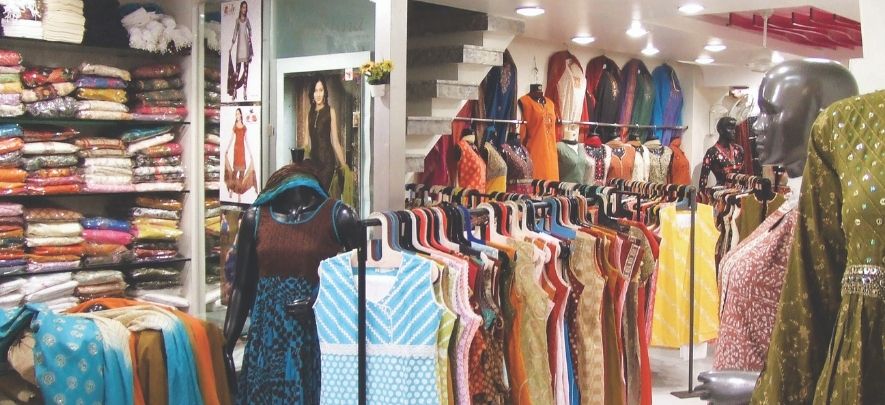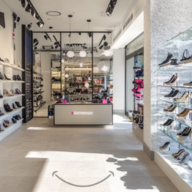Flourish or vanish

Retail
298 week ago — 7 min read
Background: The retail sector is fiercely competitive. Here's a look at what SME retailers can do to thrive in this intensely complex and competitive age.
The last three years have witnessed a challenging time for most retailers worldwide. We have seen global retail giants close stores, file for bankruptcy, or change their format and business model to sustain. In India, the SME retail business is primarily family driven and unorganised, with most SME retailers having less than three outlets. It is this segment that has, by and large, witnessed the largest threat of disruption and loss.
SME retailers need to be aware that India is changing and so are Indian customers. There has been a significant change in the buying attitude and purchase behavior patterns across demographies.
Here are some interesting characteristics, trends and insights related to SME retail, along with some well-meaning advice:
Insight: SME retail is usually owner driven, where the owner leads the organisation and is found sitting at the cash counter.
Advice: This segment is most likely to be disrupted as SME retailers often do not have systems, software and good teams in place, and are instinct and emotion driven. The business is largely dependent on the owner, who after some time, becomes the biggest bottleneck for the growth of the organisation. This needs to change.
Insight: SME retailers need to be aware that India is changing and so are Indian customers. There has been a significant change in the buying attitude and purchase behavior patterns across demographies.
Advice: SME retail leadership needs to smartly identify their customer segment/s and the value proposition delivered to the them.
Also read: Know thy millennials
Business leaders must be clear in their definition of 'who are my customers and why'. Retail is no longer needed as a ‘middleman’ or a step in supply chain with online and logistics booming. Retail must offer either the lowest price and value-for-money products (E.g. DMart), or deliver unique products with great ambience and experience (E.g. Starbucks). Those retailers who are neither the cheapest nor offer unique, innovative products / services will be disrupted in the next three years.
Insight: Top line increase is a major challenge for SME retailers due to online competition, big brands, chains, and challenging economic environment. This has led to increased pressure on margins. Most SME retailers do not have data to analyse and plan their pricing and budgeting. In a survey by 39 Solutions, it was found that more than 55% SME retailers are working with no or negligent data. If SME retailers introspect and brainstorm they will realise that post deduction of rent (of self-owned places) and remuneration of leaders (if you are working, you deserve a fair salary), the current business-model and mindset is not lucrative.
Advice: Successful SME retailers are focused on data and plan their purchase in sync with forecasted sales and customer pulse. Inventory turnover (Cost of goods sold / Average inventory) is an extremely important metric to focus on. SME retailers that manage inventory turnover well, will achieve good profitability.
Insight: ROI (Return on Investment) is an important ratio to keep track on.
Advice: It is acceptable to have low margins (Global top 250 retailers have average net margin of 3.2% as per a Deloitte study) but at least 20% ROI should be achieved.
Insight: For business to survive, sustain and scale, technology adoption is a must.
Advice: Systems must be encouraged for billing, data and account analysis, bar coding, surveillance, planning and forecasting. Having good systems allows minimizing spillage (a big risk for all retailers) and encourages data-based planning.
Insight: In the last 3 years, to counter slowdown, most retailers have gone for a heavy discounting strategy. Offering discounts throughout the year has become a survival tactic.
Advice: This is a dangerous trend, which will destroy value proposition and brand value as well as put enormous pressure on working capital and cash flows.
Insight: Across industries, because of a liquidity crunch, the toughening environment on black money and informal lending, payment cycles and treatment of creditors have worsened.
Also read: Truth be told: Busting myths around supply chain, payments, digital & e-commerce
Advice: SME retailers need to focus on working capital management and cash flow planning. They must shed their aversion to working capital loans and maintain discipline in cash flow usage. They need to infuse funds and ensure fair treatment to creditors (one can learn from DMart, the best pay masters). By paying advance (or offering lucrative terms), SME retailers can get better bargaining power from of a vendor/supplier in terms of product range (exclusivity), service and costing.
Insight: Most stores are reluctant to adopt in-store television ad revenue, position wise margins (more margins for better visibility like near cash counters), revenue for posters, vendor staff, shop-in-shop concepts with brands.
Advice: SME retail needs to be innovative in terms of monetization of their space and goodwill.
Insight: The best tool SME retail has to battle against chains and big giants is hyper-local knowledge, relationship and market pulse.
Advice: If SME retail maintains the local flavour and community-based relationships, it gets a sustainable competitive advantage over chain stores. One of the best ways to engage the community is to celebrate culturally and socially important festivals.
Insight: This is the age of collaboration, not competition.
Advice: SME retailers can collaborate with peers from different locations to share knowledge, make joint purchases to improve margins and form a group to participate in important associations, trade fairs and seminars.
India is on the cusp of transformation. The next decade is critical for Indian businesses. Those SME retailers who are in their comfort zone and are too rigid to change with time will vanish and those who adapt and see challenges as an opportunity, will flourish.
Also read: Experience explained
Article by Basesh Gala published in STOrai Magazine. Basesh Gala is the founder of 39 Solutions, an international leadership coach and business mentor. He has mentored more than 750 entrepreneurs pan India that includes SME retailers.
Disclaimer: The views and opinions expressed in this article are those of the author and do not necessarily reflect the views, official policy or position of GlobalLinker.
View STOrai 's profile
Other articles written by STOrai Magazine
The Art & Science of People Pleasing in Retail
11 week ago
Most read this week
Trending
Ecommerce 26 Mar 2025













Comments
Share this content
Please login or Register to join the discussion